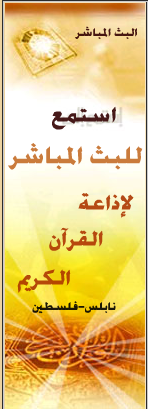Teaching the Four Skills in the Primary EFL Classroom
Introduction
The teaching of English as a foreign language is now one of the most important subjects in most European primary schools. The implementation of English has brought along the need to establish clear objectives that are different to the ones traditionally assigned to secondary schools. While in secondary schools we still find, in many cases, a teaching based in the formal aspects of the language, i.e. grammar; primary school teachers have had to adopt a different approach as the age of the children make the teaching of formal aspects not advisable. As a result of this point of view, the different Educational Departments have decided to establish, as the main purpose of the EFL teaching, the development of the four skills: listening, speaking, reading and writing. However, the implementation of this approach has not been trouble-free as many teachers insist on asking their children to understand every single word they listen to or read, or expect their pupils to write or speak without making the mistakes normally found in the process of acquiring any language.
The main purpose of this paper is to provide some guidelines that we hope can be useful to teachers of English as a foreign language in primary schools.
Listening
Listening is the language skill which learners usually find the most difficult. This often is because they feel under unnecessary pressure to understand every word. To achieve the aims related to this skill, the teacher plays an important role that is defined in the following steps.
It is important to help pupils prepare for the listening task well before they hear the text itself. First of all the teacher must ensure that the pupils understand the language they need to complete the task and are fully aware of exactly what is expected of them. Reassure the pupils that they do not need to understand every word they hear.
The next important step is to encourage pupils to anticipate what they are going to hear. In everyday life, the situation, the speaker, and visual clues all help us to decode oral messages. A way to make things a bit easier to the pupils is to present the listening activity within the context of the topic of a teaching unit. This in itself will help pupils to predict what the answers might be. The teacher can help them further by asking questions and using the illustrations to encourage pupils to guess the answers even before they hear the text.
During the listening the pupils should be able to concentrate on understanding the message so make sure they are not trying to read, draw, and write at the same time. Always give a second chance to listen to the text to provide a new opportunity to those who were not able to do the task.
Finally, when pupils have completed the activity, invite answers from the whole class. Try not to put individual pupils under undue pressure. Rather than confirming whether an answer is correct or not, play the cassette again and allow pupils to listen again for confirmation. You may be given a variety of answers, in which case list them all on the board and play the text again, so that the class can listen and choose the correct one. Even if the pupils all appear to have completed the task successfully, always encourage them to listen to the text once more and check their answers for themselves.
Speaking
First of all, we must take into account that the level of language input (listening) must be higher than the level of language production expected of the pupils. So we have many speaking activities used in the first levels that enable pupils to participate with a minimal verbal response. However in the last levels, pupils are encouraged to begin to manipulate language and express themselves in a much more personal way.
In primary schools two main types of speaking activities are used. The first type, songs, chants, and poems, encourages pupils to mimic the model they hear on the cassette. This helps pupils to master the sounds, rhythms, and intonation of the English language through simple reproduction. The games and pair work activities on the other hand, although always based on a given model, encourage the pupils to begin to manipulate the language by presenting them with a certain amount of choice, albeit within a fairly controlled situation.
In order for any speaking activity to be successful children need to acknowledge that there is a real reason for asking a question or giving a piece of information. Therefore, make sure the activities you present to the pupils, provide a reason for speaking, whether this is to play a game or to find out real information about friends in the class.
Once the activity begins, make sure that the children are speaking as much English as possible without interfering to correct the mistakes that they will probably make. Try to treat errors casually by praising the utterance and simply repeating it correctly without necessarily highlighting the errors. And finally, always offer praise for effort regardless of the accuracy of the English produced.
Reading
In order to make reading an interesting challenge as opposed to a tedious chore, it is important that pupils do not labour over every word, whether they are skimming the text for general meaning or scanning it to pick out specific information. Other things to keep in mind are:
When choosing texts consider not only their difficulty level, but also their interest or their humour so that children will want to read for the same reasons they read in their own language: to be entertained or to find out something they do not already know.
As with listening activities, it is important to spend time preparing for the task by using the illustrations (a usual feature in reading activities for children), pupils' own knowledge about the subject matter, and key vocabulary to help the pupils to predict the general content of the text. Discuss the subject and ask questions to elicit language and to stimulate the pupils' interest in the text before they begin reading. Also make sure that the pupils understand the essential vocabulary they need to complete the task before they begin to read.
While the children are reading the text, move around the class providing support if pupils need it. Where possible, encourage pupils to work out the meaning of vocabulary as they come across it, using the context and the supporting illustrations.
Do not encourage pupils to read texts aloud unless this is to learn a play or recite a poem. Reading aloud inhibits most pupils and forces them to concentrate on what they are saying as opposed to what they are reading and the meaning is very often lost.
Writing
In primary schools, EFL pupils progress from writing isolated words and phrases, to short paragraphs about themselves or about very familiar topics (family, home, hobbies, friends, food, etc.)
Since many pupils at this level are not yet capable either linguistically or intellectually of creating a piece of written text from scratch, it is important that time is spent building up the language they will need and providing a model on which they can then base their own efforts. The writing activities should therefore be based on a parallel text and guide the pupils, using simple cues. These writing activities generally appear towards the end of a unit so that pupils have had plenty of exposure to the language and practice of the main structures and vocabulary they need.
At this stage, the pupils' work will invariably contain mistakes. Again, the teacher should try to be sensitive in his/her correction and not necessarily insist on every error being highlighted. A piece of written work covered in red pen is demoralizing and generally counter-productive. Where possible, encourage pupils to correct their own mistakes as they work. If there is time, encourage pupils to decorate their written work and where feasible display their efforts in the classroom.























» المتألقه ياسمين ابراهيم
» إستمتع بخدمة ultimate game pass لجهاز الإكسبوكس و الحاسوب
» ربيع المؤمـــــــــــــــــــن
» مشروع واحة الشاطيء شقق للبيع في مدينة دبي للاستديوهات
» شركة حلول ميج للاستشارات وتطوير الأعمال
» نانا اليوم اقوى الخصومات على كل المنتجات
» مرام مالك فنانة غنائية سعودية
» موقع تعليمي سعودي لتغطية كافة المناهج
» يونيريم للرعاية المنزلية UNIREM Home Care
» ايه افضل بيوتى صالون فى حدئق الاهرام واكتوبر وزايد
» اشطر جراح عام دكتور عبد الوهاب رأفت
» اشطر جراح عام دكتور عبد الوهاب رأفت
» ايه افضل بيوتى صالون فى حدئق الاهرام واكتوبر وزايد
» مصممة الازياء رنا سمعان من نينوى العراق إلى العالمية